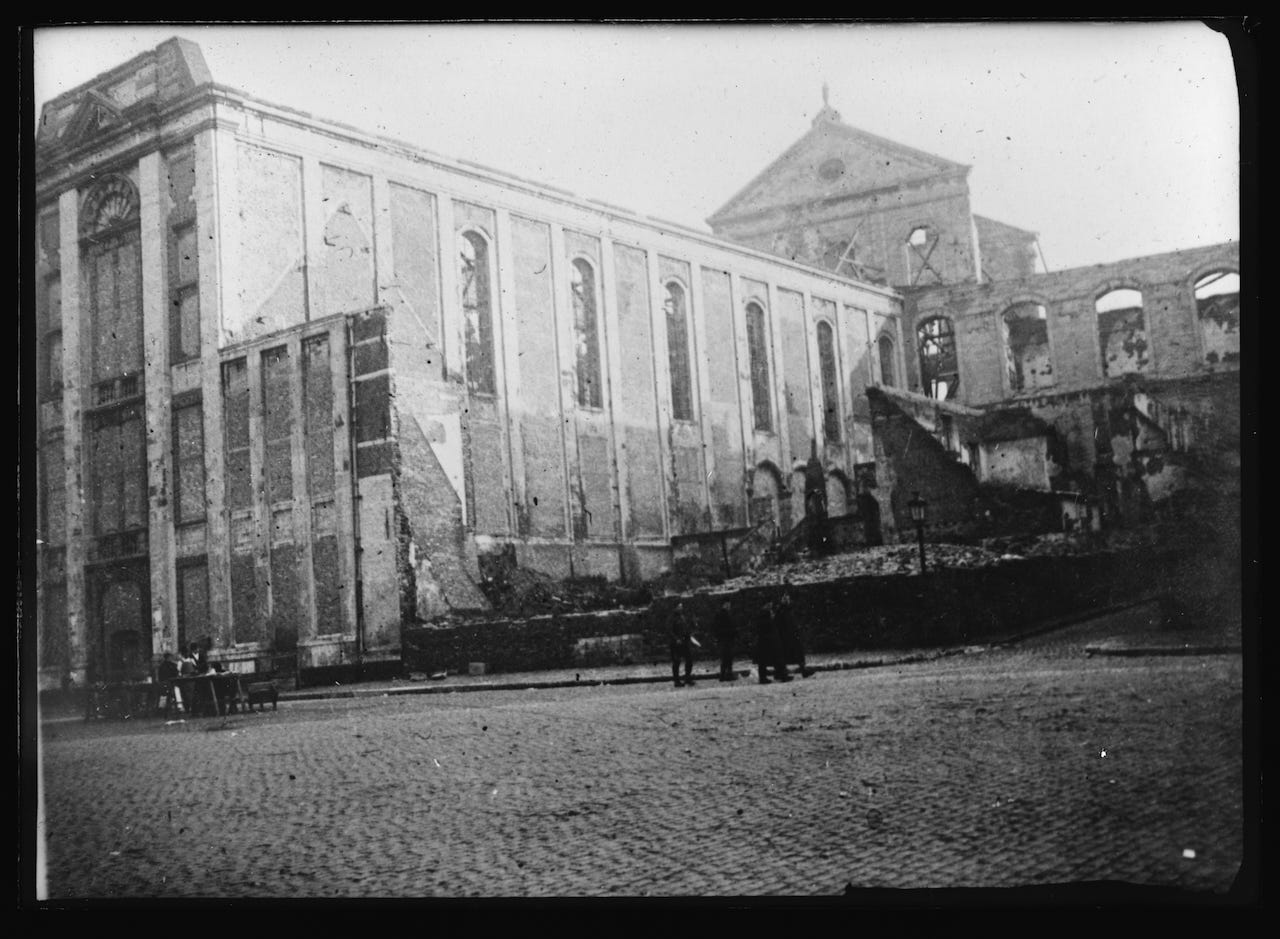The Battle Line at Louvain (1914)
“Where they burn books, they will also burn people” — Heinrich Heine
I’ve written before about the book burning ceremonies (“bücherverbrennung”) that the Nazi Party arranged in 1933 following their seizure of power and passing of the Berufsbeamtengesetz (“Law for the Restoration of the Professsional Civil Service”) dismissing public servants from German Universities (see essay below).
In that context, book burnings functioned as an overt, public and aggressive rejection of ideas considered sympathetic with socio-democratic, intellectual, left-leaning, and/or “Jewish values”. In addition, of course, the campaigns also served as mechanisms for the promulgation of censorship and suppression, including of free speech and the dissemination of knowledge. The latter, partly in order to promote a nationalistic alternative to theoretical physics later known as “German” physics (see essay below).
Interestingly, Deutsche Physik — which by the 1930s had grown to be overtly anti-semitic — had its origins not





